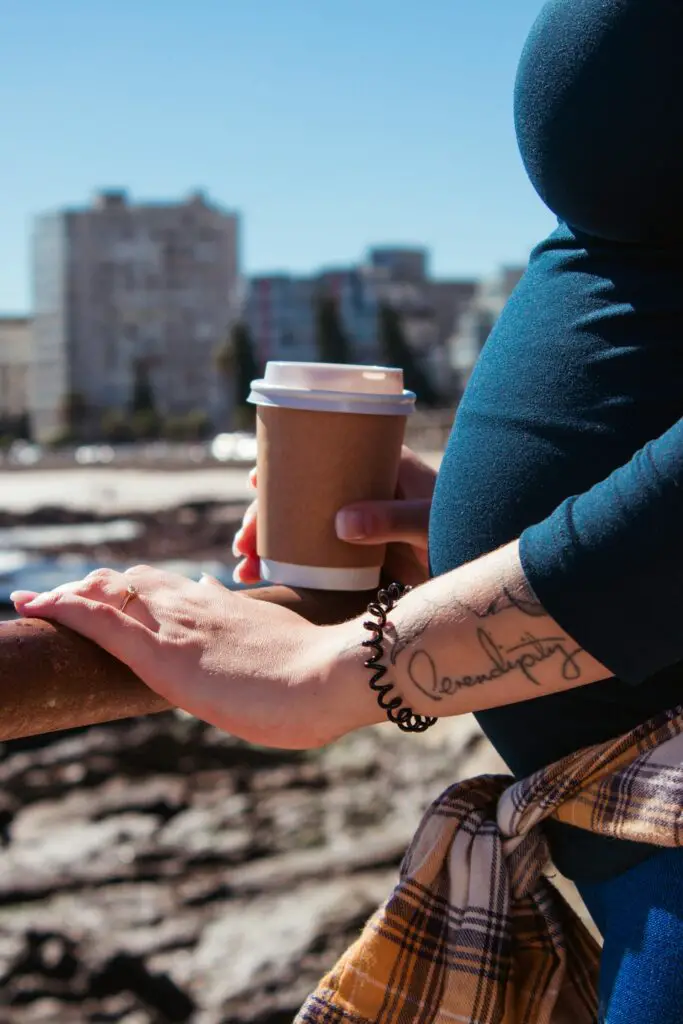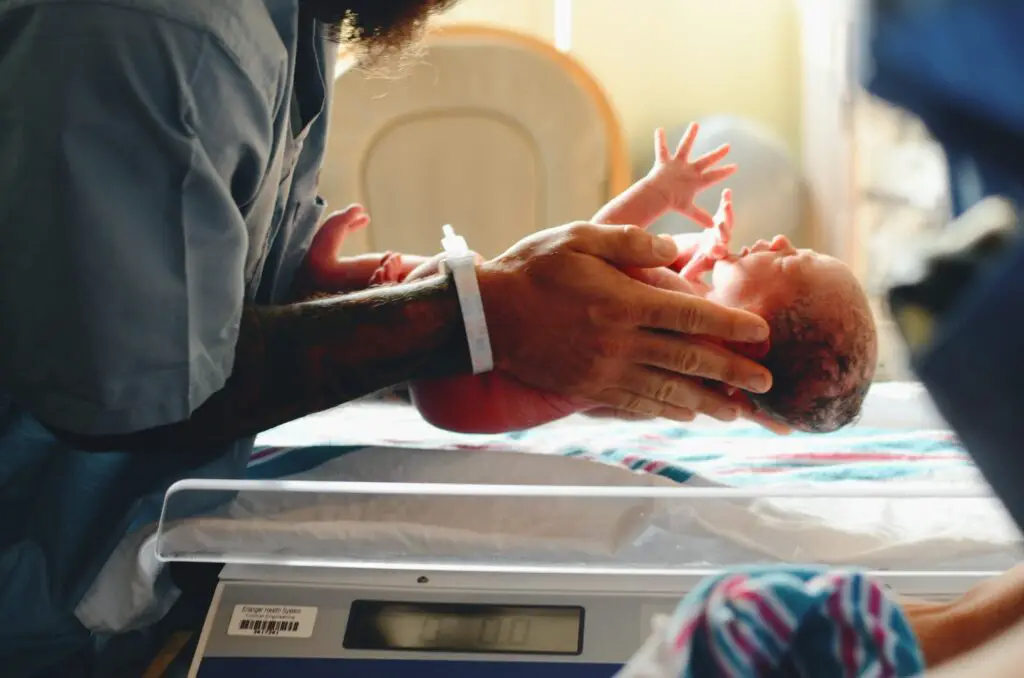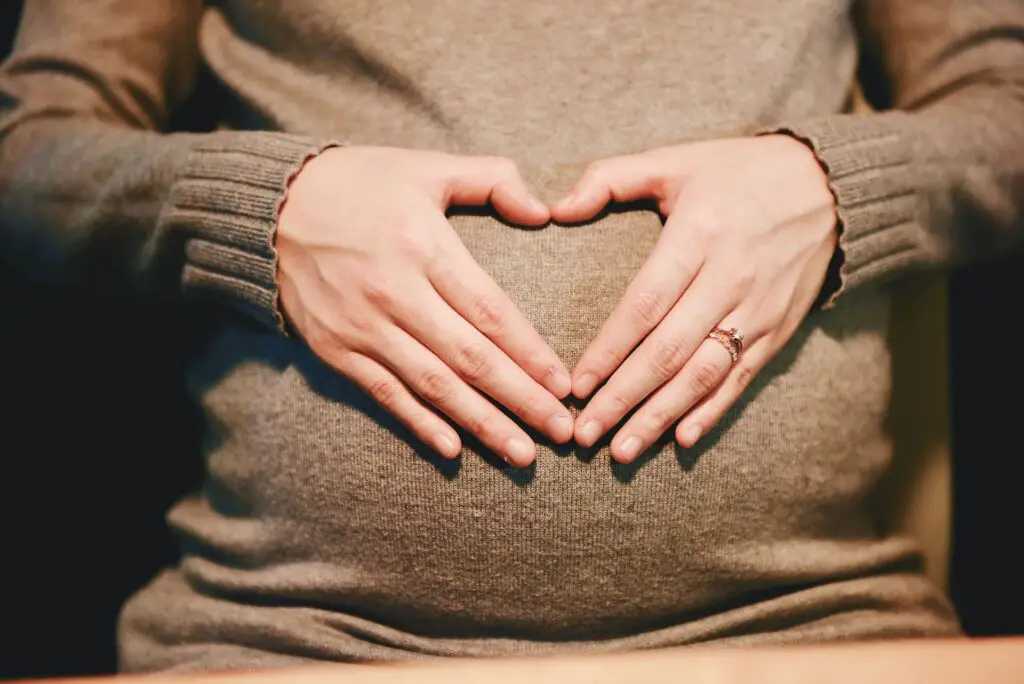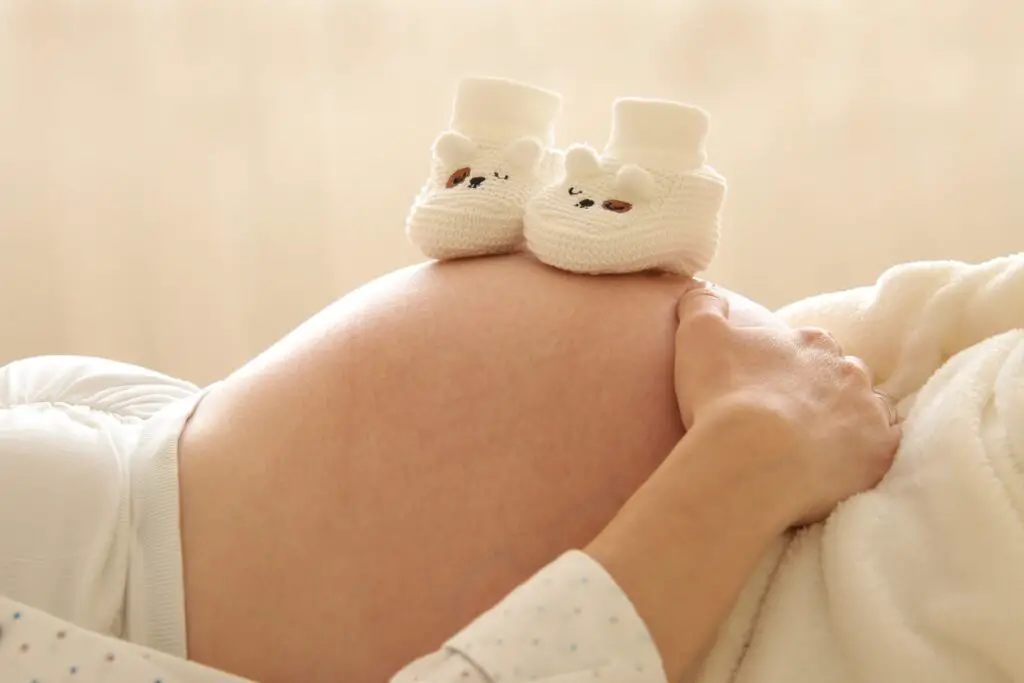Pregnancy is a time filled with joy and caution.
Many expecting mothers wonder if they can still enjoy their daily cup of coffee.
Unfortunately, the answer isn’t quite that simple.
It’s essential to know how caffeine affects both mother and baby.
In this post, we’ll explore whether coffee is safe during pregnancy, how much is considered safe, and the potential risks and benefits.
We’ll also provide tips on cutting back and suggest caffeine alternatives.

The Short Answer
Moderate coffee intake (under 200 mg of caffeine per day) is generally safe during pregnancy.
Excessive consumption can increase risks of miscarriage, low birth weight, and developmental issues.
Always consult your healthcare provider for personalized advice.
Can You Drink Coffee While Pregnant?

Many expecting mothers enjoy a daily cup of coffee.
But during pregnancy, it’s crucial to understand how caffeine affects your body and your baby.
The American College of Obstetricians and Gynecologists (ACOG) and the National Institutes of Health (NIH) have provided guidelines on caffeine consumption during pregnancy.
They recommend that pregnant women limit their caffeine intake to less than 200 milligrams per day.
This is roughly the amount found in one 12-ounce cup of coffee.
Caffeine can cross the placenta and reach your baby.
While your body might handle caffeine well, your baby’s developing metabolism cannot.
This is why it’s important to monitor and possibly reduce your caffeine intake during pregnancy.
Research has shown that consuming caffeine in moderation, up to 200 milligrams per day, does not significantly increase the risk of miscarriage or preterm birth.
However, excessive caffeine consumption has been linked to lower birth weights and a higher risk of miscarriage.
Caffeine content varies widely among different beverages.
An 8-ounce cup of brewed coffee contains between 95 to 165 milligrams of caffeine.
In contrast, the same amount of black tea has 25 to 48 milligrams.
Energy drinks and soda can also contain significant amounts of caffeine, so it’s important to read labels carefully.
Here’s a quick comparison of caffeine content in common beverages:
| Beverage | Serving Size | Caffeine Content (mg) |
|---|---|---|
| Brewed Coffee | 8 ounces | 95-165 |
| Black Tea | 8 ounces | 25-48 |
| Energy Drink | 8 ounces | 50-160 |
| Soda | 12 ounces | 30-40 |
| Decaf Coffee | 8 ounces | 2-4 |
| Hot Chocolate | 8 ounces | 5-20 |
Effects of Caffeine on the Baby

As mentioned earlier, when you drink coffee during pregnancy, caffeine crosses the placenta and reaches your baby.
This happens because caffeine passes through your bloodstream into the placenta, and your baby’s developing system is not yet equipped to process it efficiently.
Caffeine can have several potential impacts on fetal development.
One of the main concerns is that it may lead to reduced birth weight and size.
Studies have shown that babies born to mothers who consume high levels of caffeine tend to be smaller.
This includes lower birth weight, shorter length, and smaller head circumference.
Reduced birth size can also increase the risk of future health issues for your baby.
Babies born smaller may face higher chances of developing obesity, heart disease, and diabetes later in life.
This is because smaller birth size can affect how their bodies develop and function over time.
It’s crucial to keep your caffeine intake within the recommended limits to minimize these risks.
Effects of Caffeine on the Mother

Caffeine consumption can have noticeable effects on a pregnant mother.
One of the primary concerns is its ability to increase blood pressure and heart rate.
During pregnancy, your body is already working harder to support your growing baby, and added stress on your cardiovascular system can be problematic.
Another issue is that caffeine can exacerbate common pregnancy symptoms.
Heartburn, a frequent complaint among pregnant women, can worsen with caffeine intake.
Additionally, caffeine can cause jitters, making you feel more anxious or shaky.
These symptoms can be particularly uncomfortable during pregnancy.
Sleep is another area where caffeine can have a significant impact.
Pregnant women often struggle with getting enough restful sleep, and caffeine can make this even more challenging.
Consuming caffeine later in the day can lead to trouble falling asleep or staying asleep, contributing to overall fatigue and stress.
Managing your caffeine intake can help mitigate these effects.
Sticking to the recommended limit of less than 200 milligrams per day and avoiding caffeine in the late afternoon or evening can improve your comfort and health during pregnancy.
If you experience severe symptoms, it’s best to consult with your healthcare provider for personalized advice.
Benefits of Caffeine During Pregnancy

While there are concerns about caffeine, it’s also important to note some potential benefits during pregnancy.
One significant benefit is the possible reduction in gestational diabetes risk.
Studies have shown that consuming a low amount of caffeine may help lower this risk.
Specifically, drinking up to 100 milligrams of caffeine per day during the second trimester has been associated with a 47% reduction in gestational diabetes risk.
Caffeine can also improve energy balance and decrease fat mass.
It acts as a mild stimulant, which can help you feel more energetic and less fatigued.
This can be particularly useful during pregnancy when low energy levels are common.
These benefits, however, come with the caveat of moderation.
Keeping your caffeine intake within the recommended limits can help you reap these benefits without exposing yourself or your baby to potential risks.
Decaf Coffee and Other Caffeinated Beverages

When considering caffeine intake during pregnancy, decaf coffee often comes up as a safer alternative.
Decaf coffee contains significantly less caffeine than regular coffee, making it a better option for those wanting to limit their caffeine intake.
However, it’s important to be aware of how decaf coffee is processed.
Some decaf coffees are made using methylene chloride, a chemical solvent.
While the FDA regulates the amount of methylene chloride allowed in decaf coffee, some may still have concerns about its safety.
Opt for decaf coffee processed using the Swiss Water Method, which doesn’t use chemical solvents.
Beyond coffee, other beverages also contain caffeine.
Tea, for instance, generally has less caffeine than coffee, but the amount can vary.
A typical cup of black tea contains about 40-70 milligrams of caffeine, while green tea has about 20-45 milligrams.
Herbal teas are usually caffeine-free, but it’s essential to check the labels as some might contain small amounts.
Chamomile, peppermint, and ginger teas can be soothing and refreshing.
Just be sure to check with your healthcare provider, as some herbs are not recommended during pregnancy.
Soda and energy drinks are other common sources of caffeine.
A can of soda typically contains around 30-40 milligrams of caffeine.
Energy drinks, however, can have much higher amounts, often exceeding 100 milligrams per serving.
Additionally, energy drinks may contain other stimulants and sugars, which are not recommended during pregnancy.
Comparing the effects of different caffeinated beverages is crucial.
Regular coffee and energy drinks generally have higher caffeine levels and can contribute more significantly to overall intake.
Tea and soda are usually safer in moderation, but it’s still important to keep track of your total caffeine consumption.
Always read labels and consider all sources of caffeine in your diet to ensure you stay within safe limits.
Cutting Back on Caffeine During Pregnancy

Reducing caffeine intake during pregnancy is a wise choice for many expecting mothers.
Here are some practical tips to help you cut back effectively.
Start by gradually reducing your caffeine consumption.
Suddenly stopping can lead to withdrawal symptoms like headaches and irritability.
Instead, slowly decrease the amount you consume each day.
For example, if you drink three cups of coffee, try cutting down to two, then one.
Mixing decaf coffee with regular coffee is another useful strategy.
Gradually increase the proportion of decaf until you’re mostly drinking decaf.
This method helps you adjust without missing your coffee fix entirely.
Be aware of hidden sources of caffeine in your diet.
Many sodas, energy drinks, teas, and even certain foods like chocolate and coffee-flavored ice cream contain caffeine.
Check labels carefully to keep track of your intake.
As mentioned earlier, consider alternatives to caffeine for maintaining your energy levels.
Drinking plenty of water, eating a balanced diet, and getting enough rest can naturally boost your energy.
Incorporating light exercise, like walking or prenatal yoga, can also help you feel more energetic without relying on caffeine.
How Caffeine Affects Breastfeeding
Caffeine doesn’t just affect pregnancy; it can also impact breastfeeding.
When you consume caffeine, it passes into your breast milk, though typically in small amounts.
If your baby seems fussy, irritable, or has trouble sleeping, it might be due to caffeine.
Preterm or newborn babies may process caffeine more slowly, making them more susceptible to its effects.
Monitoring your baby’s behavior can help you determine if caffeine is causing any issues.
To minimize potential problems, try to time your caffeine consumption.
Drinking coffee right after breastfeeding gives your body time to process caffeine before the next feeding.
This can reduce the amount of caffeine in your breast milk during feeding times.
Conclusion
To sum up, moderate caffeine intake during pregnancy is generally safe.
Stick to less than 200 milligrams per day.
Be mindful of all caffeine sources, including coffee, tea, and sodas.
Reducing caffeine gradually and exploring alternatives can help.
Always consult with your healthcare provider.
They can offer personalized advice based on your health needs.
This ensures you and your baby stay healthy throughout your pregnancy.


